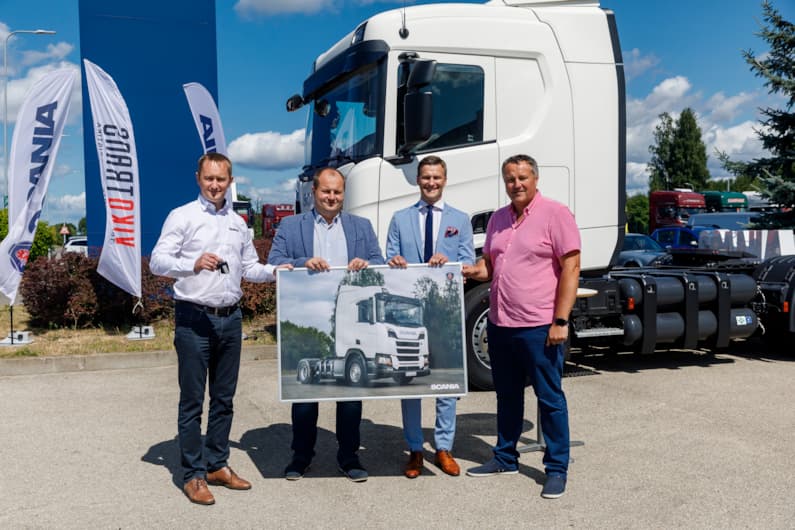In Latvia HKScan has become the first food industry company to deliver products with more environmentally friendly trucks, which as the fuel use compressed natural gas (CNG). HKScan’s well know brands in the Baltics are Rīgas miesnieks, Jelgava, Tallegg and Rakvere.
“The decision to use more environmentally friendly Scania R 410 CNG cars for deliveries is another step for the company to achieve the group's goal of ensuring carbon neutrality for its industrial production by the end of 2025 and carbon neutrality at all stages of the food production chain – from animal breeding to the delivery of the final product to consumers – by the end of 2040,” explains Heino Lapiņš, Sales Director of HKScan Latvia.
According to the company's estimates, the use of new cars will allow to reduce CO2 emissions by 25 tons annually.
“For five years in a row, cars produced by Scania have been proven themselves as the most economical and environmentally friendly trucks in the German Green Truck Award tests. This year, Scania R 410 model was the one which proved to be the leader of sustainability solutions in all criteria. Scania CNG cars reduce CO2 by up to 80%. They are quieter and therefore more friendly for urban transportations. The financial benefits in terms of total operating costs compared to diesel cars are also the reason why more and more companies are choosing this freight transportation solution. Already for more than two years in Latvia, our customers have been using the advantages of CNG in such sectors as waste management, construction, milk and general freight transportation,” says Guntis Bukalders, Scania Latvia Sales Manager.
Product deliveries will be provided by the long-term cooperation partner SIA VIKOTRANS. Andrejs Trasko, Executive Director of the company, emphasizes: “We have been cooperating with HKScan since 2009 and are proud that we are entrusted to be a more important part of HKScan's business processes and to contribute to the success of our partner. SIA VIKOTRANS is a logistics service provider that pays a lot of attention to environment protection issues, and our decision to buy compressed natural gas trucks was well thought out. The use of cars powered by more environmentally friendly fuel allows to significantly reduce the exhaust gas emissions. For example, on the Tallinn-Riga route, such a car reduces CO2 emissions by 50 to 90 percent compared to a truck equipped with a diesel engine. HKScan's environment protection goals are very ambitious, and we are pleased to be able to help take one step closer to meeting those goals.”
The new trucks will only be used to deliver HKScan products. Each car can carry 66 pallets of products. It is possible to place 864 packs of Mārtiņa grildesiņas sausages or 576 packs of Doktora ekstra sausages on each pallet. Each car can carry about 19 tons of such products at a time.
To achieve carbon neutrality, HKScan Latvia already last year started using only renewable electrical energy.
Images

